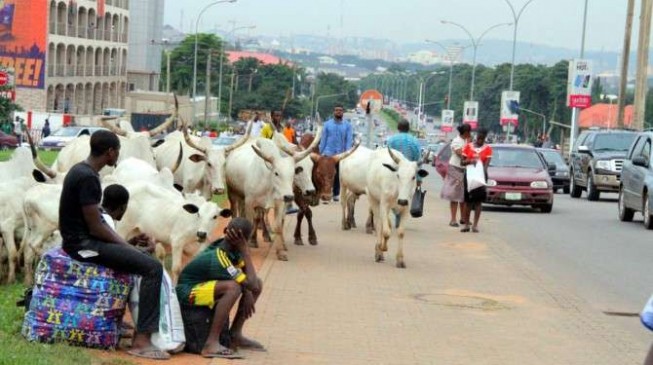
Clashes between farmers and nomadic herders across West Africa are beginning to look like the norm, with each country taking its share of the violence. Residents of Logo and Guma communities in Benue state, Nigeria, entered 2018 on a sad note.
Suspected herdsmen invaded communities in the areas and by the time the dust settled on an attack, over 70 people had been killed.
West African countries such as Mali, Mauritania, Niger, Ghana, Ivory Coast, Senegal, Congo have had their fair share of the mayhem but Nigeria remains the worst-hit.
A 2017 Global Terrorism Index (GTI) report said between 2010 and 2016, “deaths from Fulani extremists resulted in more than 3,000 deaths across four countries, with 92% of fatalities taking place in Nigeria”.
In 2015, GTI rated the herdsmen as the fourth deadliest terror group in the world, after ISIL, Taliban, al-Shabaab and Boko Haram.
WEST AFRICA AND HERDSMEN CRISIS: THE BIGGER PICTURE
The conflict between herdsmen and farmers is known to have a long and brutal history in West Africa, even predating the sub-region’s insecurity challenges.
The first possible line of thought could be the competition over resources, including land and water. The conflicts are fuelled by the herdsmen’s quest for grazing field, but here is the sad thing: the pattern of attacks over the years have shown to be a complex mix of politics, identity, religion, terrorism and criminality.
The sub-region’s loose political and security environment is not helping matters, either.
And the attacks have also assumed a dreadful transnational dimension. For instance, some attackers said to be recruited from Mali and the Central African Republic have been fingered in violence in parts of Nigeria. Bands of mercenary have also been involved in similar incidents in parts of Cameroon, Ghana, Mali, and Niger.
Below are a few instances of these attacks in West African countries
EIGHTEEN KILLED IN NIGER
In a November 2016, eighteen people were killed in various clashes between herdsmen and farmers.
The clash, which broke out near the village of Bangui along the country’s southern border with Nigeria, also left 20 others injured, the country’s officials had said.
What happened? Livestock belonging to the herders were said to have invaded the field of one of the farmers, damaging crops.
“The nomadic herders fought with a farmer, whom they wounded. He was taken to the medical centre and everything started from there,” Oumarou Mohamane, Bangui’s mayor, had told Reuters.
In a reprisal attack, a group of farmers then attacked the camp, burning down houses numbering about 15.
GHANA TOO…
Villages in the Kwahu east district of the eastern region of Ghana were thrown into mourning after clashes between herdsmen and some of their farmers left a reported number of 15 persons dead, including five Fulanis.
Hundreds were also left stranded and displaced after fleeing their communities in the incident which occurred in November.
The clashes, which were between residents of Dwibease and Hweehwe, and the herders, followed the death of an unidentified boy at Dwerebeafe.
Solomon Aboagye, an indigene, was quoted by Ghana Web, an online platform, to have said: “In retaliation, three of the Fulanis were also killed at Aboyan.
“Two of the natives went to the farm and did not return. I asked some people to search for them and unfortunately, they found them dead.”
It was also reported that the deaths occurred at night in the farms and the bodies spotted daytime.
BLOODSHED IN IVORY COAST
Seventeen persons were confirmed dead and 39 others injured after a clash broke out between herdsmen and farmers in Bouna, north-east of Ivory Coast, in 2016.
Among those injured in the clash, which spanned two days, were five of the security personnel deployed to quell the crisis.
The attack was said to be just one out of many other violent clashes between the two parties “but none has been of this magnitude”.
“On the night of March 23 to 24, the situation was particularly aggravated and it was at this time that 17 people died,” Vincent Toh Bi, one of the residents, had told AfricaNews.
OPPORTUNITY FOR SPREAD OF JIHAD?
While happenings have shown the clashes between the herders and the farmers have largely been unattended to, there are fears that they could pose as a window for the emergence of a deadly “movement”.
A Reuters report back in 2016 noted that while these clashes are usually brushed off, “Islamist militants are exploiting Fulani anger to spread jihad from the thinly populated north to its center”.
“The Fulani complained that farmers took all the land,” Lala Walet, a Mopti NGO worker, promoting livestock commerce was quoted as saying.
“So the jihadists came and said ‘OK, join our group and we will help you fight to get it back.” - Cable Nigeria
No comments:
Post a Comment